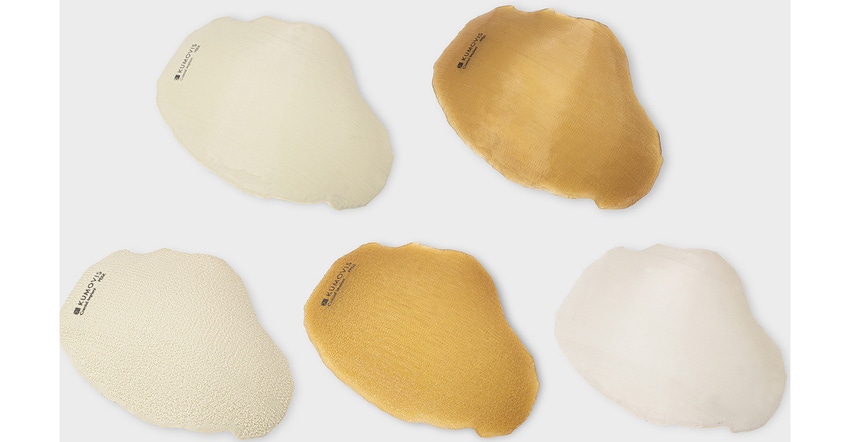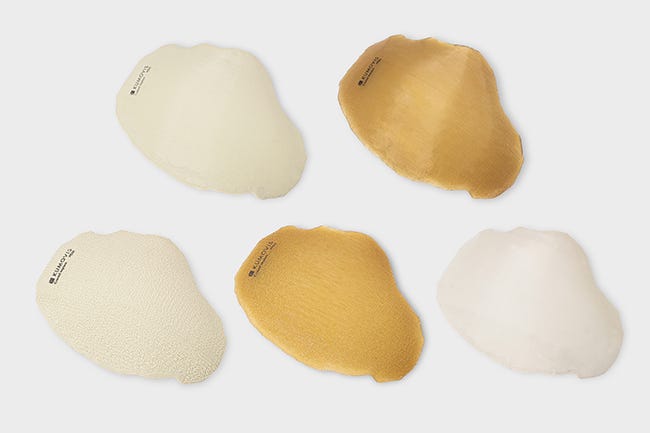The Munich-based startup claims that its 3D-printing technology can be more cost- and time-efficient than conventional processes such as milling or injection molding.
October 21, 2020

More than 10 medical-grade 3D-printing polymers will be showcased by Kumovis GmbH at next month’s virtual.Compamed and Formnext Connect online events. The Munich-based startup claims that its 3D-printing technology can be more cost- and time-efficient than conventional processes, such as milling or injection molding, especially for manufacturing patient-specific medical devices and small series.
Founded in 2017, Kumovis developed a fused deposition modeling printer, the R1, designed specifically for medical applications. To enable medical technology companies and hospitals to manufacture products in a resource-efficient way, the company continues to expand its range of medical-grade polymers. The portfolio now includes PEEK reinforced with carbon fiber (PEEK CF); PPSU mixed with barium sulfate (PPSU + BaSO4) for improved X-ray visibility; and PEI and resorbable polymers PLLA, PLGA, PCL, and PDO.
|
Cranioplasty implants fabricated from various polymers on the Kumovis R1 printer. Top row, left to right: PEKK and PPSU (smooth surface). Bottom row, left to right: PEKK, PPSU (surface with structure), and PEEK (smooth surface). Image courtesy Kumovis GmbH. |
“Positive response from the industry has been steadily growing since the introduction of the Kumovis R1 series in the summer of 2019,” said Stefan Leonhardt, co-CEO and co-founder of Kumovis. “With this dedicated production system, the medical technology industry can process materials such as PEKK and PPSU in addition to the well-known PEEK in a reproducible way. And what is more, we achieve mechanical properties that are currently unique in 3D printing with polymers and can be compared to those of injection molding,” said Leonhardt.
Laminar air flow in the build chamber allows for consistent temperatures up to 482°F (250°C). The patent-pending local cooling system helps to chill the molten polymer in a targeted manner, and adapts to each strand and layer. This innovative approach elevates high-performance polymers to an industrial level when it comes to mechanical properties, aesthetics, reproducibility, and usability, said Kumovis.
A built-in filter system allows users to turn the R1’s build chamber into an ISO Class 7–equivalent cleanroom environment . The printer is also suitable for use in existing cleanrooms. Documentation and monitoring software are available to help companies demonstrate compliance with parameter ranges in process validation.
Kumovis supports both medical device manufacturers and hospitals in developing products and qualifying plants as well as validating processes. The company draws on interdisciplinary expert knowledge in mechanical engineering, medtech, and polymers technology, as well as expertise in funding programs. Applications implemented using the Kumovis R1 3D printer have already passed their first ASTM test. An example is the successful completion of worst-case load tests for spinal cages according to ASTM F2077. Another possible application is additive manufacturing of individualized implants for maxillofacial surgery and neurosurgery.
Attendees of virtual.Compamed and Formnext Connect will have an opportunity to interface with company experts and learn more about the medical applications of the Kumovis R1 printer as well as the full portfolio of materials.
Under normal circumstances, Compamed is a medtech supplier showcase co-located in Düsseldorf, Germany, with Medica, the world’s largest medical device tradeshow. Because of COVID-19, these events, as well as additive-manufacturing-centric Formnext, will be held virtually this year.
About the Author(s)
You May Also Like



